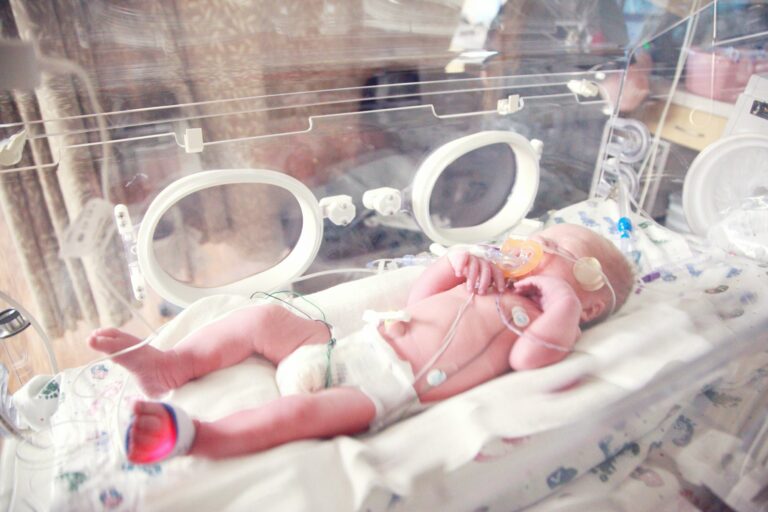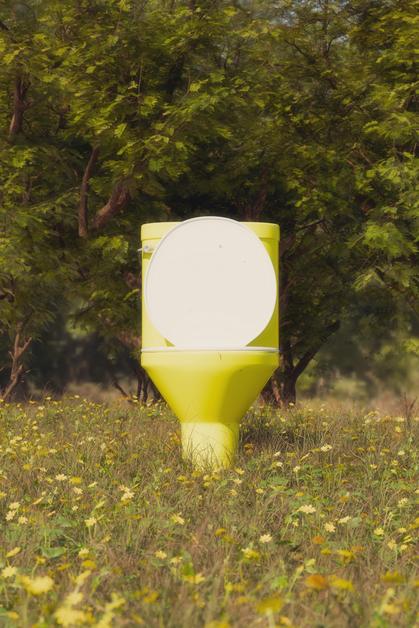Cheese pregnancy—a phrase that can summon both comfort and a cascade of new questions as soon as a parent-to-be stands at the deli counter, scanning for hidden dangers behind labels and rind. How to savor old favorites, yet sidestep invisible risks? Can cheese pregnancy truly harmonize the pleasures of taste with the invisible demands of fetal health? Here, the journey through soft, hard, cooked, and plant-based varieties takes unexpected turns, shaped not just by science but by the creativity and resourcefulness of parents everywhere. If terms like listeria, pasteurization, and calcium leave you curious or even anxious, you’re not alone in seeking clarity. Imagine a table set for confidence and reassurance—what follows: practical answers, medical insight, and a new lens on dietary vigilance that feels less like restriction and more like empowerment.
Why Cheese Pregnancy Matters: Nutrition, Immunity, and Development
At the heart of cheese pregnancy lies nutrition that goes far beyond basic sustenance. Cheese, with its concentrated calcium, delivers structural support for your baby’s entire growing skeleton while shoring up your own bone reserves—a process regulated by complex hormonal feedback involving parathyroid hormone and calcitonin. Calcium, often absorbed most effectively from dairy, is also vital for cardiac development, neuromuscular function, and blood pressure regulation—three pillars of maternal and fetal well-being.
The story doesn’t stop at calcium. Cheese is packed with high-quality protein, essential for building fetal tissue and organs, but also rich in vitamin B12, zinc, and tryptophan, each weaving a thread into neural tube formation and healthy brain signaling. Fermented cheeses, thanks to bacterial cultures, add probiotics—live microorganisms that can, in some studies, boost maternal immunity and possibly even support the evolving gut-brain axis in the developing fetus. But moderation counts: too much cheese, especially if high in sodium or saturated fats, is linked with hypertension and excessive gestational weight gain.
You may wonder, “Is any cheese pregnancy risk-free?” That question leads directly to safe handling and choosing wisely, not merely for tradition or flavor, but to counter unseen bacterial threats.
Cheese Pregnancy and Safety: Listeria, Pasteurization, and Smart Choices
Why all the fuss about cheese pregnancy and safety? The culprit is often a single, elusive bacterium: Listeria monocytogenes. In medical terms, listeriosis can cross the placenta through maternal bloodstream, causing devastating complications—miscarriage, fetal infection, premature birth—with even mild symptoms in the pregnant parent. Although infection remains rare, vigilance is justified. And there’s more: raw milk cheeses may shelter other pathogens like Salmonella and Escherichia coli (E. coli), both of which can provoke severe gastrointestinal distress or, rarely, systemic illness with consequences for both parent and fetus.
The good news? Regulatory improvements and manufacturer quality controls now make it possible to enjoy a broad range of choices. Focus on “pasteurized” when scanning packages—pasteurization, the swift heating of milk to eliminate pathogenic microbes, is the gold standard in cheese pregnancy safety.
Safe Cheeses: A Practical List
- Hard cheeses such as cheddar, Parmesan, Swiss, Gruyère, Emmental, Gouda, and Cantal are generally hostile environments for bacteria, remaining low-moisture and aged until few pathogens can survive. Yes, even if labelled “raw milk” their dense texture and limited water curtail most microbial growth.
- Pasteurized soft options—think cream cheese, ricotta, mozzarella, mascarpone, processed spreads (including industrial cheese triangles), and cottage cheese—retain their safety as long as they’re factory-sealed and clearly labelled.
- Cooked cheese dishes—pizza oozing with bubbles, lasagna piping hot, fondue or any casserole where cheese is thoroughly melted and steamy—neutralize contaminants through heat.
Cheeses Best Avoided: Unpasteurized Soft Varieties and Counter Slices
- Unpasteurized soft cheeses (Brie, Camembert, Roquefort, blue cheese, most Saint-Marcellin, rind-covered goat cheeses) should be set aside—unless cooked above 75°C/165°F to destroy pathogens.
- Deli-sliced and store-counter cheeses often introduce humidity, temperature variability, and possible cross-contamination.
- Traditional Hispanic cheeses (queso fresco, cotija, panela, cuajada) carry an additional risk, given artisanal, less-standardized production—even when labelled pasteurized, cooking is the safer path.
- Remove all rinds—bacterial concentrations are higher here, particularly with washed or bloomy types.
Goat, Sheep, and Alternative Cheeses: Checking Details
If considering goat or sheep cheese, inspect for the words “pasteurized milk.” Avoid any with white, soft rinds unless hot and bubbling from the oven. Packaging integrity and reputable sources matter—avoid loosely sold or unsealed cheeses, which pose a higher cheese pregnancy risk.
Processed and Pre-Grated: Mindful Selection
Factory-sealed, pasteurized processed and pre-grated cheeses typically offer reassurance. Read labels closely: freshness counts, and the risk increases if the product comes pre-sliced at the deli. Consider grating at home from a block for maximum freshness and lower cross-contamination risk.
Harnessing the Power of Cooking: Heat as Your Ally
Cooking transforms cheese pregnancy risks, acting as a safety net. Melted pizza, golden gratin, or bubbling fondue? The underlying principle is uniform heating—ensuring cheese is molten throughout (not just surface-warmed), with a target minimum temperature of 75°C (165°F). Heat disrupts bacterial membranes and inactivates toxins. This opens up occasional enjoyment of otherwise discouraged varieties, provided they’re fully cooked. Still, avoid undercooked or barely warmed dishes—thermal inactivation demands patience and thoroughness.
Home Cheese Pregnancy Safety: Simple Habits for Peace of Mind
Practical strategies anchor cheese pregnancy into daily home routines. Consider these evidence-based tips:
- Scan every label for “pasteurized milk” or its equivalents (“heat-treated” or “ultra-heat-treated” are also reassuring).
- Refrigerate promptly—2–4°C (36–39°F) is best; avoid storing near raw meat or eggs that may leak or drip.
- Hand hygiene is essential: wash before and after handling cheese; disinfect knives, boards, and counters.
- Closely monitor shelf life: once opened, cheese should be consumed quickly; protect with tightly wrapped portions, and bin anything with uncharacteristic smell, visible mold (except that which is expected), or a slimy surface.
- Discard rinds from soft or washed cheeses, ensuring a minimized bacteria load.
Creative Alternatives for Cheese Pregnancy: Dairy-Free, Fortified, and Inspired
Fiendish for flavor or simply missing texture? The repertoire of cheese pregnancy alternatives has burgeoned. Modern vegan options—cashew, almond, or soy-based, often fortified with calcium, vitamin D, or B12—fill the gap without bacterial hazards, provided labels guarantee industrial, pasteurized production.
Wider dietary support includes plant-based milks, yogurts fortified with essential micronutrients, and protein-rich pulses, seeds, and nuts. Think of salads brightened with pasteurized mozzarella and cherry tomatoes, egg omelets enriched with grated cheeses, chicken wraps layered with cream cheese, or hearty lasagna bubbling with ricotta. The creativity is endless—cheese pregnancy is an invitation to broaden the palate and reframe old cravings.
Wise Consumption: How Much, How Often, and Why
Cheese pregnancy is about balance, not abstinence. Aim for portions of roughly 40g (1.5 ounces) per serving, typically three times a day if following a dairy-centric pattern. Parents restricting dairy for personal or digestive reasons can turn toward leafy greens, legumes, almond butters, or fortified alternatives, ensuring key nutrients are not overlooked.
Remember, probiotics (beneficial bacteria from certain fermented cheeses) may enhance immune function in parent and child, potentially reducing common infections in the first years of life, though data in pregnancy are still suggestive, not conclusive.
Managing urges? Channel cravings by reaching for what is safest—pasteurized, hard, or cooked cheeses—while experimenting with various textures and plant-derived formats to maintain the pleasures of eating without fear.
Eating Out and Traveling: Stay Vigilant
Preparation shifts with context. At a restaurant, don’t hesitate: ask if cheeses are pasteurized. Favor dishes featuring hard or thoroughly cooked cheeses; skip cheeses from buffets, street stalls, or those without transparent labels. During trips, use insulated coolers or freezer packs for any cheese in your bag—room temperature is a clear invitation for bacterial growth.
What If You Ate the Wrong Cheese? Clear Steps, No Panic
Unintentional consumption of higher-risk cheese pregnancy options need not be a cause for instant alarm. Monitor yourself for fever, muscle aches, digestive issues, or fatigue. If anything feels amiss—even mild symptoms—connect promptly with your midwife, doctor, or nurse. Timely action makes the difference when infections are at stake. It’s reasonable to seek reassurance or, when in doubt, pursue blood tests or further checks.
When Professional Support is Indispensable
The path of cheese pregnancy isn’t one-size-fits-all. If you experience troubling symptoms after suspect foods, remain uncertain about what is appropriate, or have unique nutritional requirements, reach out to your care team—be it your general practitioner, midwife, or a registered dietitian. Their expertise can address personal health histories, allergies, lactose intolerance, or dietary preferences, ensuring safety without diminishing pleasure or nutrition.
Key Takeaways
- Cheese pregnancy is about thoughtful choices: hard, pasteurized, or well-cooked cheeses are the safest bet for both parent and baby.
- Many risks stem from Listeria monocytogenes, especially in unpasteurized, soft, or blue-veined varieties—eliminate rind and favor products with clear labelling.
- Cooking cheese until hot can neutralize most bacterial threats.
- Safe food handling habits at home (label reading, cold storage, hand hygiene) are highly effective protections.
- Fortified vegan cheeses, plant-based milks, and creative recipes expand dietary options without unnecessary anxiety.
- Eating out requires vigilance—ask questions about cheese origins and avoid mystery slices.
- Should accidental exposure occur, anxiety is normal, but monitoring symptoms and consulting professionals ensures prompt care and peace of mind.
- Healthcare providers remain your best resource for clarity, reassurance, and adaptation—personalized advice always trumps general recommendations.
- For ongoing advice and tailored health questionnaires for your child, you can download the Heloa app and benefit from free, personalized guidance.
Cheese pregnancy doesn’t need to be a source of stress. With reliable information, medical savvy, and a touch of culinary inventiveness, pleasure and safety can sit side by side, one delicious bite at a time.
Questions Parents Ask
Is it safe to eat paneer or Indian cheese during pregnancy?
Absolutely! Paneer, as well as soft pasteurized cheeses like mozzarella, feta, cream cheese or ricotta, are considered safe options in pregnancy—especially if they are made with pasteurized milk. These cheeses bring a welcome boost of protein and calcium to your diet. Just take care to avoid unpasteurized or artisanal soft cheeses, which may carry germs like Listeria. Whenever in doubt, checking the label or confirming at restaurants can bring you peace of mind.
What types of processed cheese are safe during pregnancy?
Most processed cheese spreads and slices, such as Amul cheese or other widely available packaged varieties, are suitable for consumption while pregnant, provided they’re clearly made with pasteurized milk. These cheeses are often factory-sealed and can be a helpful source of calcium and protein. For extra security, prioritize unopened, labelled packaging and enjoy them as part of a balanced diet.
Should I avoid all types of soft cheese while pregnant?
Good news: you don’t have to remove all soft cheeses from your meals! The key is ensuring that the cheese is made from pasteurized milk. Pasteurized soft cheeses, when sealed and stored properly, can be enjoyed safely during pregnancy. If the cheese is unpasteurized, it is safer to avoid it or make sure it’s cooked until steaming throughout. If ever an ingredient or its label leaves you unsure, there’s no harm in reaching out to a healthcare professional for reassurance.
Further reading:









